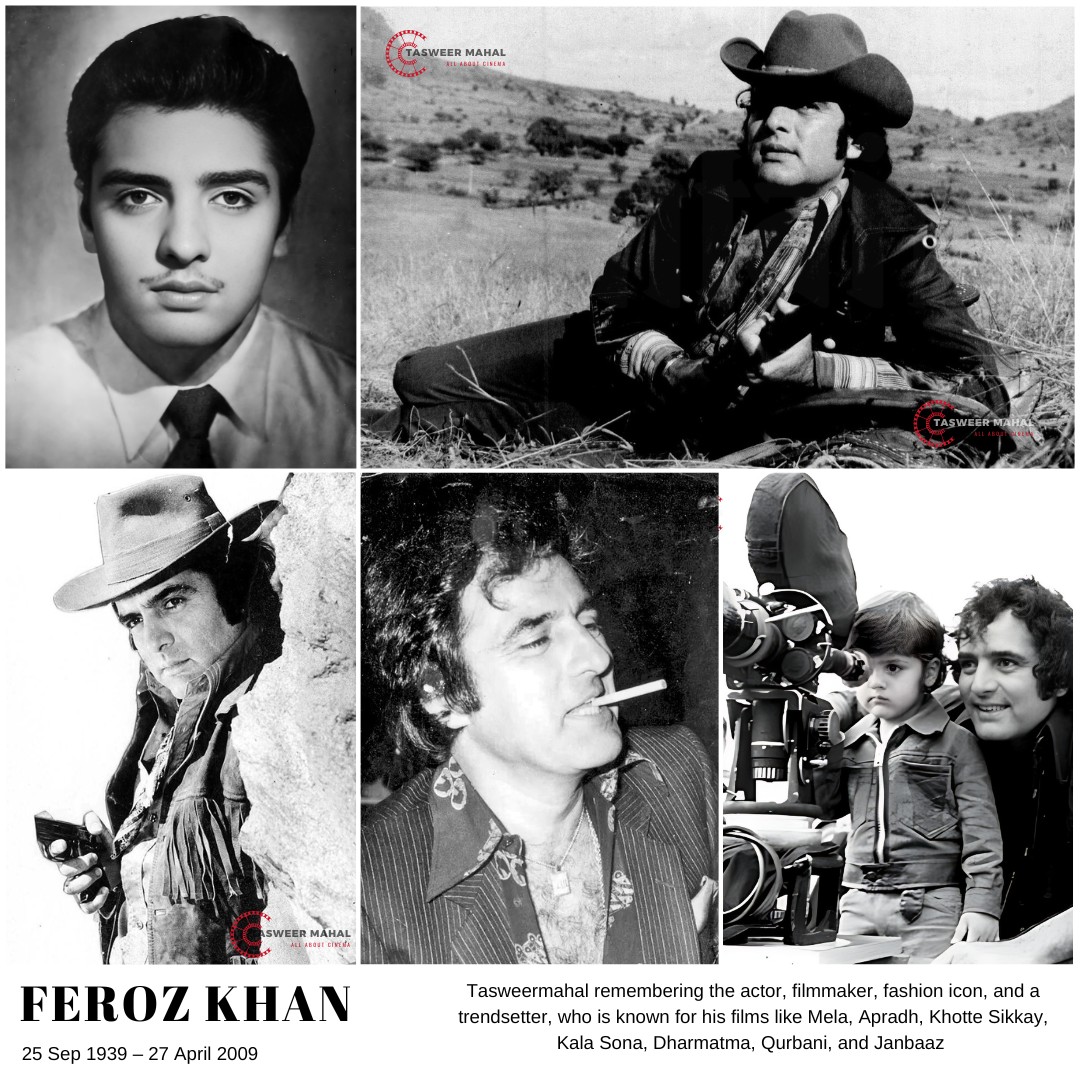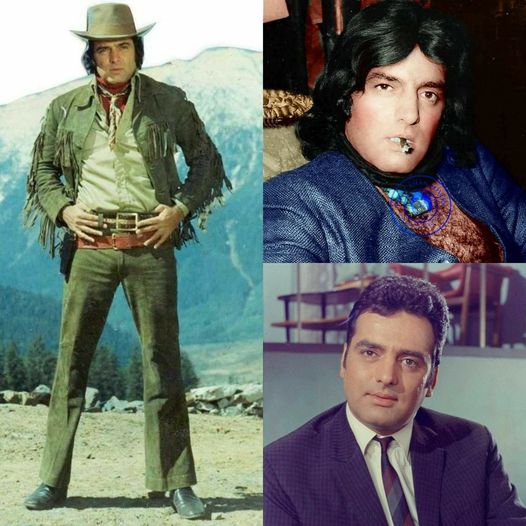Feroz Khan, the epitome of charisma and style in Indian cinema, continues to inspire generations with his timeless films and unforgettable presence.
By KS Correspondent
Feroz Khan, acclaimed as one of the most strikingly handsome actors ever to grace Indian cinema, possessed not only looks but also a rare charisma and charm that set him apart. His departure left a void unmatched since, as described by his cousin Zeenat Aman: “I read somewhere that Oxford’s word for the year 2023 is ‘rizz,’ short for ‘charisma’. Well, if I’ve ever known anybody to have rizz, it was Feroz Khan.” Tasweermahal corroborates Zeenat’s sentiment, affirming, “Feroz was suave, charming, and polished,” encapsulating his persona perfectly.
Feroz Khan, a multifaceted figure in the industry as an actor, filmmaker, fashion icon, and trendsetter, made an indelible mark with films such as “Arzoo” (1965), “Safar” (1970), “Mela” (1971), “Apradh” (1972), “Khotte Sikkay” (1974), “Kala Sona” (1975), “Dharmatma” (1975), “Qurbani” (1980), and “Janbaaz” (1986).
Born Zulfiqar Ali Shah Khan on September 25, 1939, in Bangalore, India, to a diverse lineage—his father from Afghanistan and mother of Persian descent from Iran—Feroz Khan received his education at Bishop Cotton Boys’ School and St. Germain High School in Bangalore. His cinematic journey began in Bombay (now Mumbai) with his debut in “Didi” in 1960.
Over the 1960s and 1970s, Khan transitioned from modest thrillers to starring roles, achieving breakthroughs with “Oonche Log” (1965) and continuing to ascend with successes like “Arzoo” (1965) and “Aadmi Aur Insaan” (1969), which earned him the Filmfare Best Supporting Actor Award. Noteworthy contributions include “Raat Aur Din” (1967), “Safar” (1970), “Mela” (1971), “Geeta Mera Naam” (1974), “Kaala Sona” (1975), “Nagin” (1976), “Shankar Shambhu” (1976), “Kachche Heere” (1982), and more.
As a director, Khan debuted with the crime drama “Apradh” (1972), innovatively featuring auto racing in Germany. His directorial flair continued with “Dharmatma,” a milestone film inspired by “The Godfather” and notable for being Bollywood’s first shot in Afghanistan, where Khan not only filmed but also integrated the country into the narrative, reflecting his deep-rooted connection.
The iconic “Qurbani” (1980) marked another milestone, reintroducing Zeenat Aman as a modern, bold woman unafraid of her sensuality, solidifying its status as a classic. Khan’s directorial journey extended with films like “Janbaaz” (1986), “Dayavan” (1988), “Yalgaar” (1992), “Prem Agan” (1998), and “Jannat” (2001).
Feroz Khan reshaped Indian cinema by pushing boundaries of sensuality, from Mumtaz in a bikini to Rekha’s debut in item numbers, Zeenat Aman’s iconic “Laila O Laila,” Hema Malini’s allure in “Dharmatma,” Sridevi’s chiffon-clad beach dances, Dimple Kapadia’s sun-kissed elegance, and Celina Jaitley in “Janasheen,” empowering actresses to explore new territories on screen.
His films often featured opulent settings, international locales, horse races, stylish cars, and captivating women, consistently exuding luxury and allure. Even in ensemble casts like “Welcome” (2007), Khan’s cameo stood out, a testament to his enduring charisma.
Married to Sundari Khan, with two children including actor Fardeen Khan, Feroz Khan, often likened to the “Clint Eastwood of the East,” passed away on April 27, 2009. His legacy as a visionary filmmaker continues to influence Bollywood, forever shaping its portrayal of sensuality and style.
(With inputs from agencies)


Leave a Reply